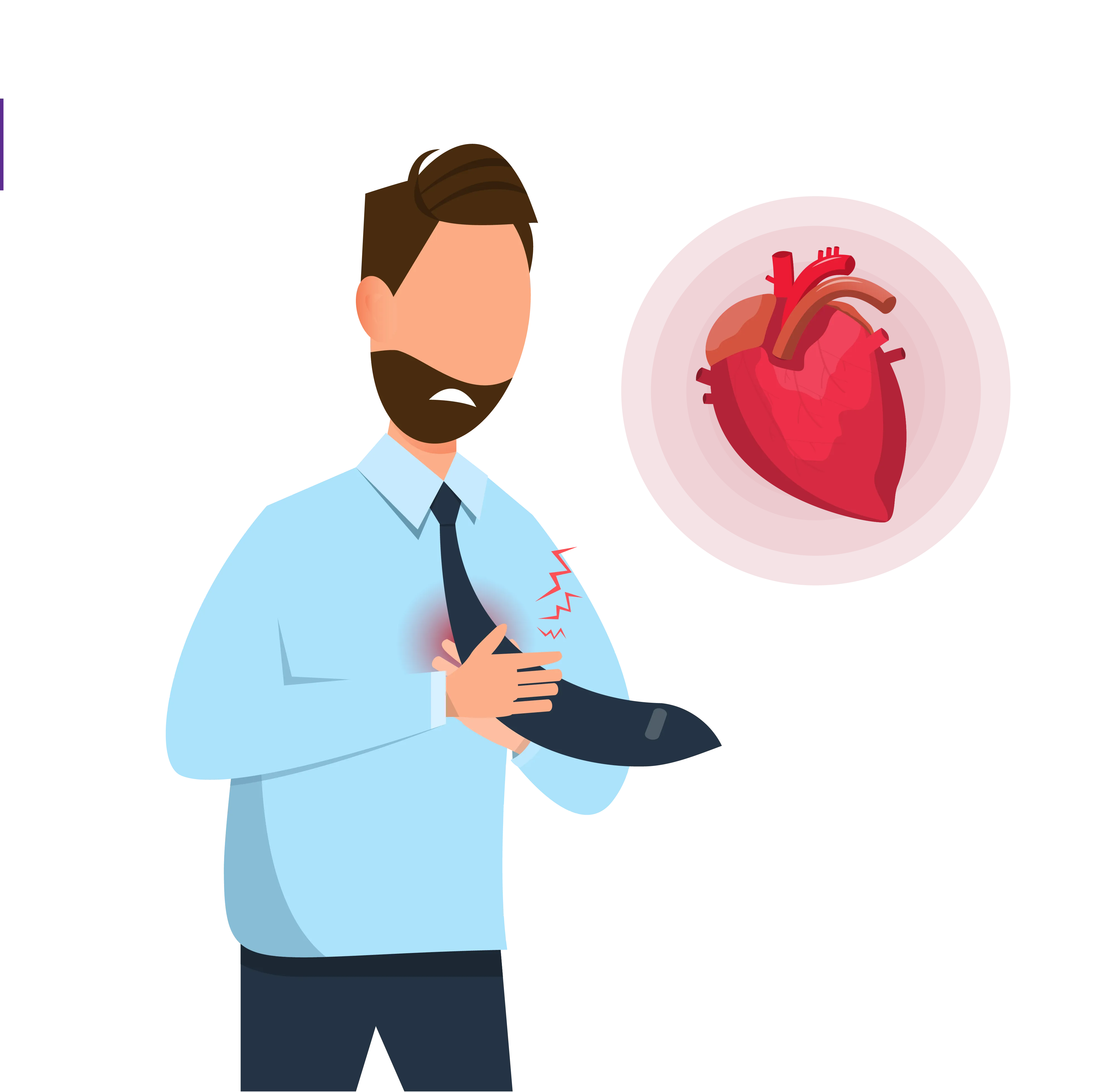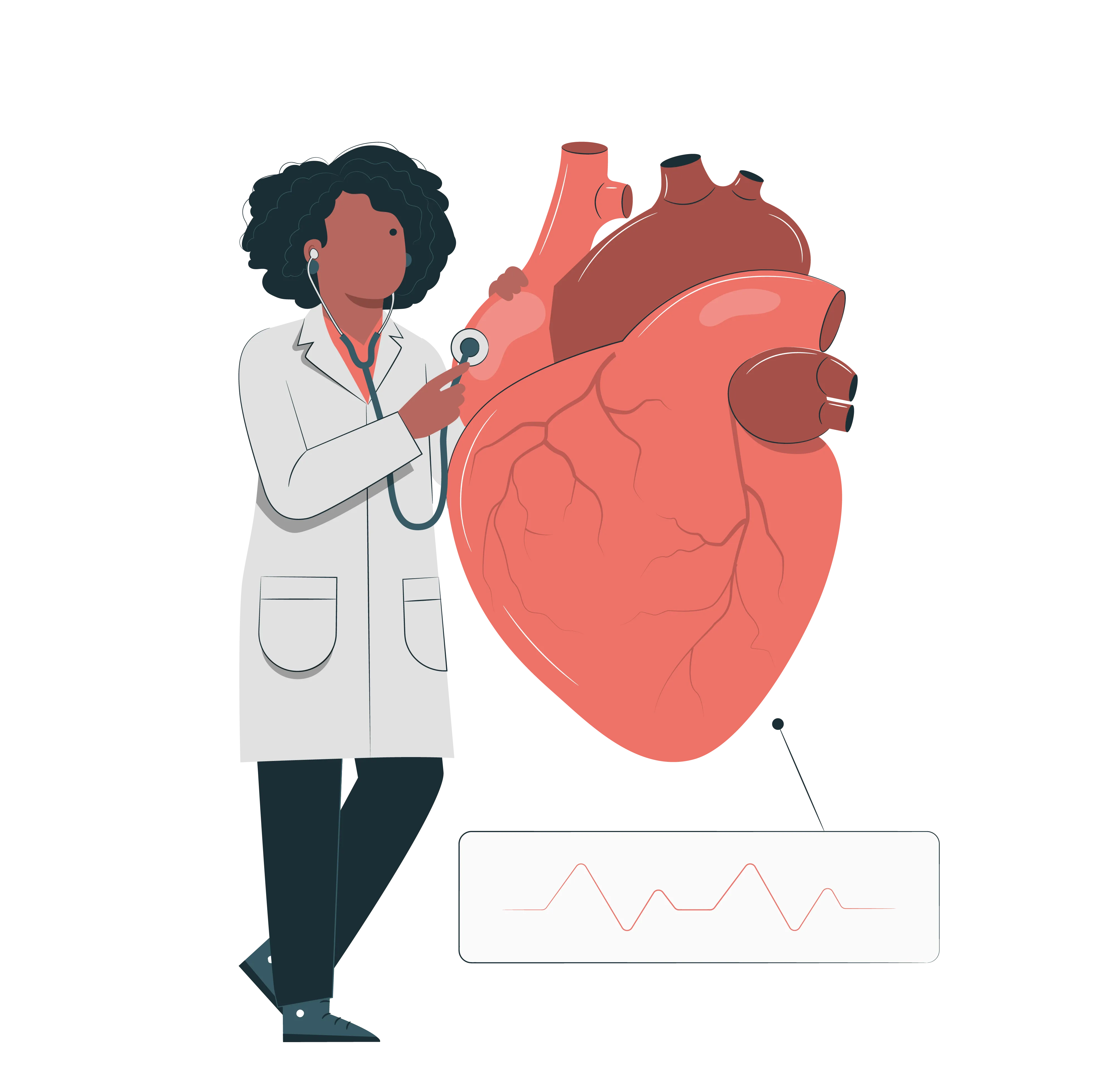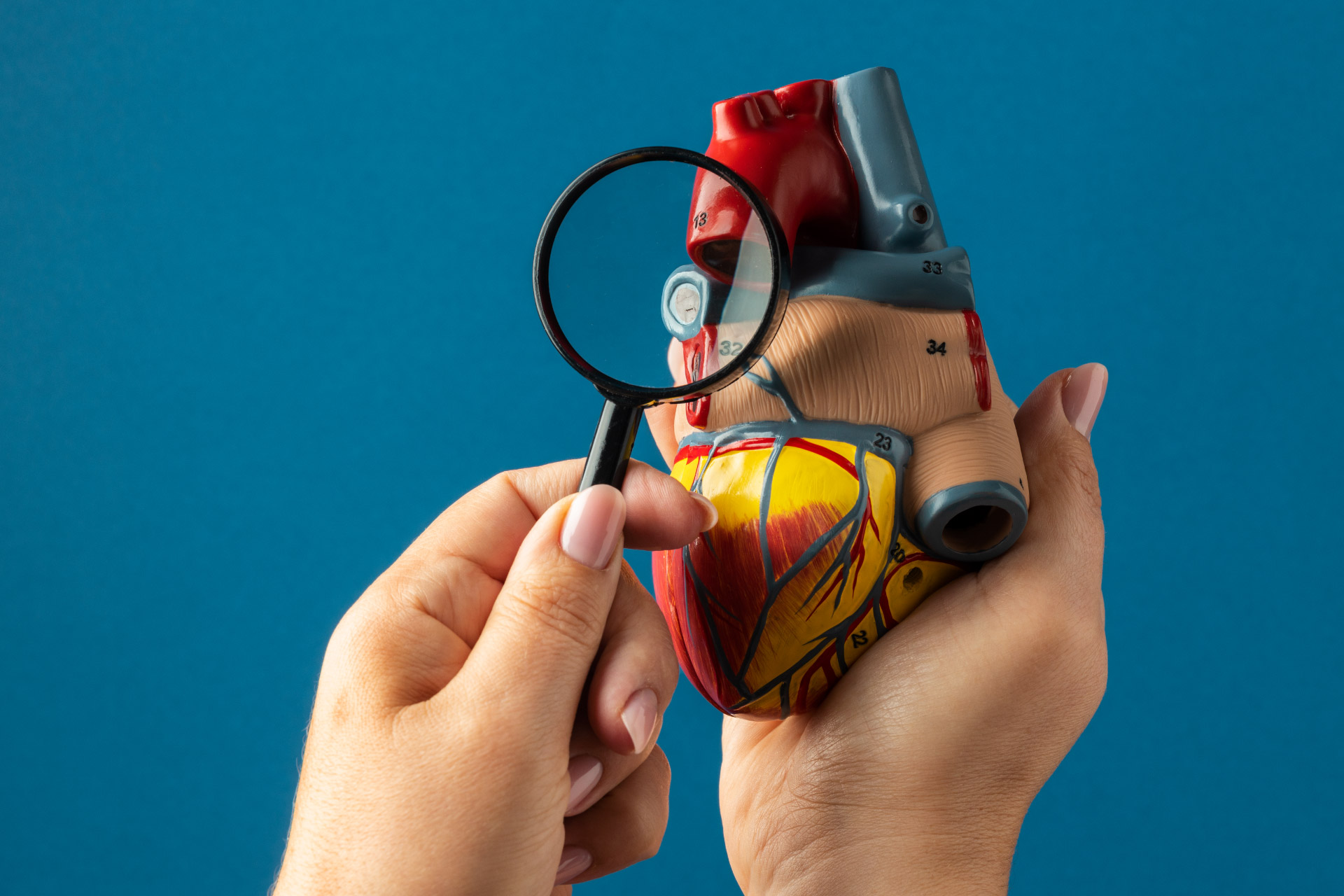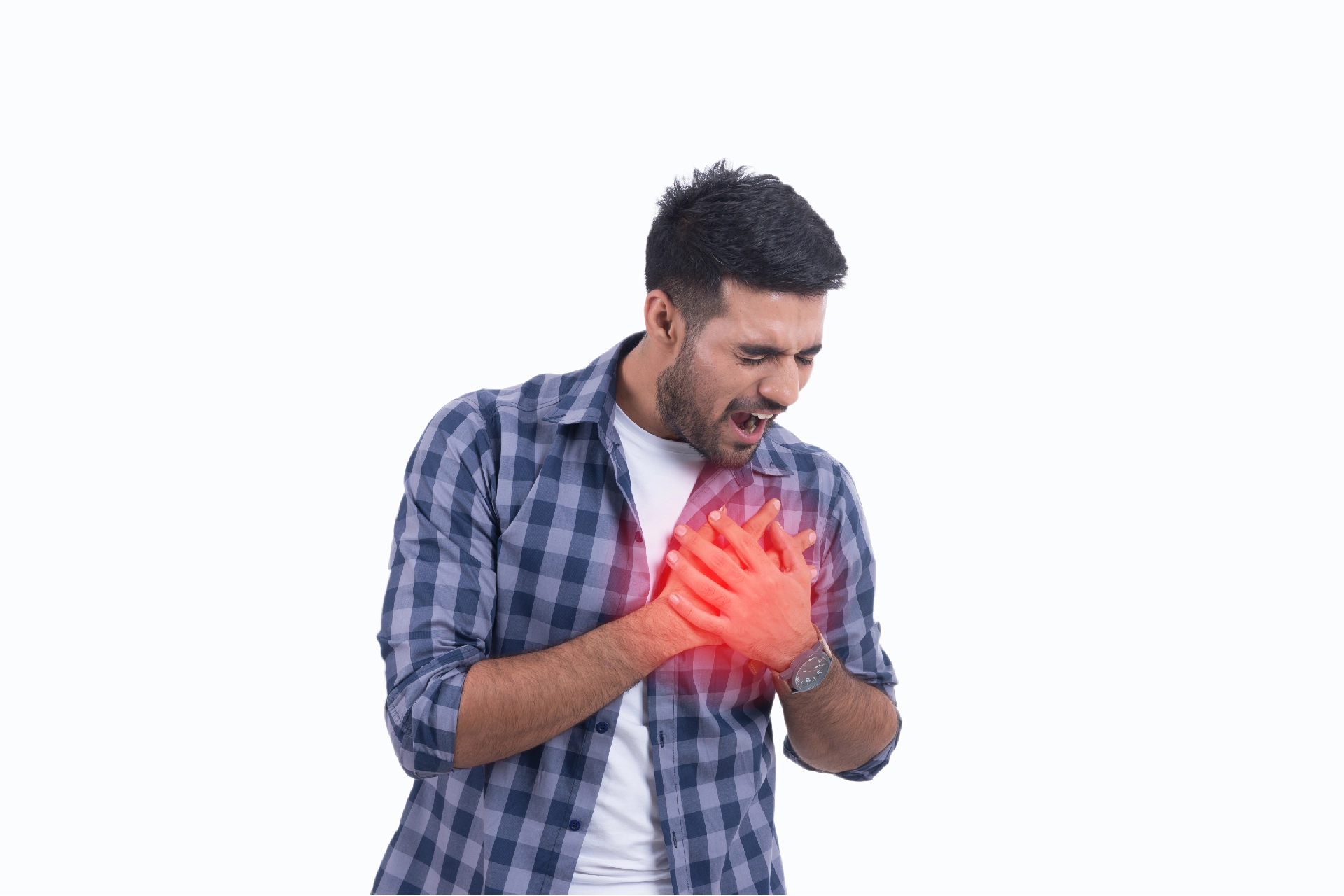Heart Health | 5 min read
Heart Valve Disease: What are the Key Causes and Important Prevention Tips?
Medically reviewed by
Table of Content
Key Takeaways
- If left untreated, heart valve disease can lead to heart failure and stroke
- Cough, fatigue, and weakness are some symptoms of heart valve disease
- Electrocardiogram and echocardiogram are done to diagnose disorders
The heart is the hardest working muscle in your body. It is a vital organ and so taking care of it is very important. Your heart has four valves that keep blood flowing. They are the:
- Tricuspid valve
- Pulmonary valve
- Mitral valve
- Aortic valve
Heart valve disease occurs when one or more of these valves don’t function properly. Several conditions may affect these valves and cause disrupted blood flow. Treatment depends on the heart valve affected and the severity of the issue. In some cases, you may need a heart valve replacement. If left untreated, heart valve disease can be fatal. It can lead to further complications including heart failure and stroke.
A study conducted in India on pregnant women with valvular heart diseases reported that 87.3% of women had rheumatic heart disease . To know more about the symptoms, causes, and heart valve disease prevention, read on.
Additional Read: Smoking and Heart Disease: How Does Smoking Risk Your Heart?
Heart Valve Disease Symptoms
The symptoms of heart valve disease are:
- Cough
- Fatigue
- Dizziness
- Weakness
- Fainting
- Headaches
- Weight gain
- Heart palpitations
- Irregular heartbeat
- Pulmonary edema
- Shortness of breath
- Swelling of abdominal
- Chest pain or discomfort
- Whooshing sound or heart murmur
Heart Valve Disease Causes
Heart valve disorders have different causes. It can be due to sickness, chronic conditions, or lifestyle issues. Here is a list of the risk factors for heart valve disease.
- Rheumatic fever
- Heart attack
- High cholesterol
- Diabetes
- Congenital heart disease, a birth defect
- Age-related changes, old age
- Sexually transmitted infection
- High blood pressure (hypertension)
- Hardening of the arteries (Atherosclerosis)
- Certain infections that affect the heart
- Certain heart disease or heart attack
- Abnormal swelling or bulging of the aorta (aortic aneurysm)
- Inflammation of the heart tissue (infective endocarditis)
- Narrowing and hardening of arteries (coronary artery disease)
- Degenerative changes in the heart muscle
- Weakening of connective tissue in the mitral valve (myxomatous degeneration)
Besides these, certain chronic autoimmune diseases can also be a cause. For instance, Lupus, which causes joint pain, skin rashes, fever, and organ damage can damage the heart.

Heart Valve Disease Diagnosis
First, a doctor will listen to your heart with a stethoscope. This helps detect any heart rate abnormalities. He/she may also listen to your lungs to see if there is fluid buildup. Next, the body is checked for signs of water retention. This is a sign of heart valve disease. Several other lab tests are then conducted to diagnose heart valve disorders.
- Chest x-ray: It helps your doctor check if your heart is enlarged. It is done by taking a picture of your heart.
- Echocardiogram: Use of sound waves from a wand placed on the chest or passed down the throat. It creates a moving picture of the heart valves and chambers. Basically, an ultrasound of the heart.
- Electrocardiogram: Checks for abnormal heart rhythms. It involves recording the heart’s electrical activity on graph paper. This is done through small electrode patches attached to your skin.
- Cardiac catheterization: Known as an angiogram, it is a test to diagnose valve disorders. A thin tube or catheter that has a camera is used to take pictures or x-ray movies of:
- Coronary arteries
- Heart chambers
- Heart valves
- Blood vessels
This test helps your doctor know the severity of the disorder.
- Stress test: This tests the effects of exertion on your symptoms and the heart.
- MRI scan: It helps your doctor confirm a diagnosis and work on a treatment plan. This method produces a detailed picture of your heart.
Apart from these, your doctor may need order tests such as:
- Radionuclide scan
- Exercise stress echocardiogram
- Transesophageal echocardiogram (TEE).
All these tests either help detect or diagnose the problem. Some of these confirm a diagnosis and will be done before treatment starts.

Heart Valve Disease Treatment
Treatment of heart valve disease depends on the symptoms and severity. Your doctor may initially advise conservative treatments to protect your valve from further damage. These include making lifestyle changes such as:
- Eating healthy
- Quitting smoking
- Exercising more
Also, you will be put under continuous medical supervision. Your doctor may also prescribe medications like:
- Beta-blockers
- Calcium channel blockers
- Diuretics
- Vasodilators
Surgery or invasive procedures may be required if the symptoms become severe. Here, repairing the heart valve will be done by using:
- Your own tissue
- An animal valve
- A valve donated from another person
- An artificial or mechanical valve
Do not ignore any signs of heart valve problems and seek immediate medical attention immediately. Follow heart disease prevention tips and quit unhealthy habits like smoking. To keep your heart in the best shape, book an online doctor consultation on Bajaj Finserv Health. Get the right heart health tips and treatment without any delays.
References
- https://my.clevelandclinic.org/health/diseases/17639-what-you-need-to-know-heart-valve-disease
- https://www.cureus.com/articles/63605-the-pattern-of-valvular-heart-diseases-in-india-during-pregnancy-and-its-outcomes
- https://medlineplus.gov/ency/article/000140.htm
- https://www.heart.org/en/health-topics/heart-attack/diagnosing-a-heart-attack/transesophageal-echocardiography-tee
Disclaimer
Please note that this article is solely meant for informational purposes and Bajaj Finserv Health Limited (“BFHL”) does not shoulder any responsibility of the views/advice/information expressed/given by the writer/reviewer/originator. This article should not be considered as a substitute for any medical advice, diagnosis or treatment. Always consult with your trusted physician/qualified healthcare professional to evaluate your medical condition. The above article has been reviewed by a qualified doctor and BFHL is not responsible for any damages for any information or services provided by any third party.





